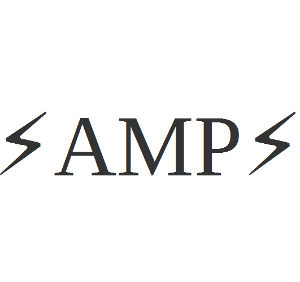| Google Launches Fast Web Page Technology AMP Early |
| Monday, 29 February 2016 |
|
Google's plan to take over the web, or just make it faster depending on your viewpoint, has started. AMP is a lightweight subset of HTML and JavaScript designed to be fast to deliver using a content delivery network.
Google seems to be obsessed with making the Internet faster. This is mostly a good thing, although it doesn't mean that we have to be happy when it suggests, strongly suggests that we do things in a particular way. AMP Accelerated Mobile Pages is a subset of web technologies designed to be fast to deliver. This sounds fairly innocent and to many a great idea. What we do is build more or less static web pages using just HTML/CSS buy limited to a range of options and no ad-hoc JavaScript. The only JavaScript that is allowed is standardized to do particular jobs. For example <amp-video> is a tag you can include that the AMP JavaScript will expand to show a video. The standardization allows the JavaScript and the AMP pages to be served by a Content Delivery Network (CDN), which is of course provided by Google. All you have to do to gain this benefit is to convert your pages to use AMP. To make it easy, WordPress has added AMP support automatically and, given it is estimated that 25% of the web runs on WordPress, that's a big win for AMP. So what is the downside? The first thing is that AMP pages will get higher placement in Google's search results as a reward. For example, only AMP pages will feature in the "carousel" that appears at the top of search results. This is indeed a reward for using AMP but it is also a punishment if you don't want to. AMP is an open source project but it is very much funded and run by Google. If you want to include a new tag then you are going to have to get Google to approve it. Notice that all AMP is served by the Google CDN so it has even more power than you might expect from an open source project. The importance of having control of the tags is that this can be used to make access to some sources more or less easy. For example there is the <amp-ad> which will show adverts from the ad agencies that Google has worked with. There is currently a list of twelve ad networks supported - if you want to use a different ad network you can't. Part of the motivation for this is to try to make ad-blocking seem less reasonable - from the FAQ: A goal of the Accelerated Mobile Pages Project is to ensure effective ad monetization on the mobile web while embracing a user-centric approach. With that context, the objective is to provide support for a comprehensive range of ad formats, ad networks and technologies in Accelerated Mobile Pages. As part of that, those involved with the project are also engaged in crafting Sustainable Ad Practices to insure that ads in AMP files are fast, safe, compelling and effective for users.
There are some extended components such as <amp-facebook> and <amp-youtube>, but any new service is going to have to get a tag included in the project. It is true that the <amp-iframe> tag can be used to include any content you like, but there are restrictions - no iframe can be close to the top of the document and they are sandboxed. At the moment opinion seems to be split. Some commentators are pleased that Google is doing something about the speed of the mobile web and see the open source nature of the project as a protection against Google becoming a gatekeeper to the web. Others see no reason for Google being so generous in providing a complete CDN to speed up serving other peoples web pages. Perhaps it is all about Google becoming the gatekeeper. Perhaps it is about controlling advertising networks or gaining even more analytics. Who knows which is correct, but one thing is sure there are a lot of big publishers very interested in having their pages served fast for no extra support costs.
More InformationIntroducing the Accelerated Mobile Pages Project, for a faster, open mobile web https://github.com/ampproject/amphtml Related ArticlesGoogle Speeds Up Mobile HTML With AMP Chrome Mobile Uses Proxy For Data Compression A Faster Web - mod_pagespeed Comes Out Of Beta Faster websites for free - thanks Google! To be informed about new articles on I Programmer, install the I Programmer Toolbar, subscribe to the RSS feed, follow us on, Twitter, Facebook, Google+ or Linkedin, or sign up for our weekly newsletter.
Comments
or email your comment to: comments@i-programmer.info
|
| Last Updated ( Monday, 29 February 2016 ) |





